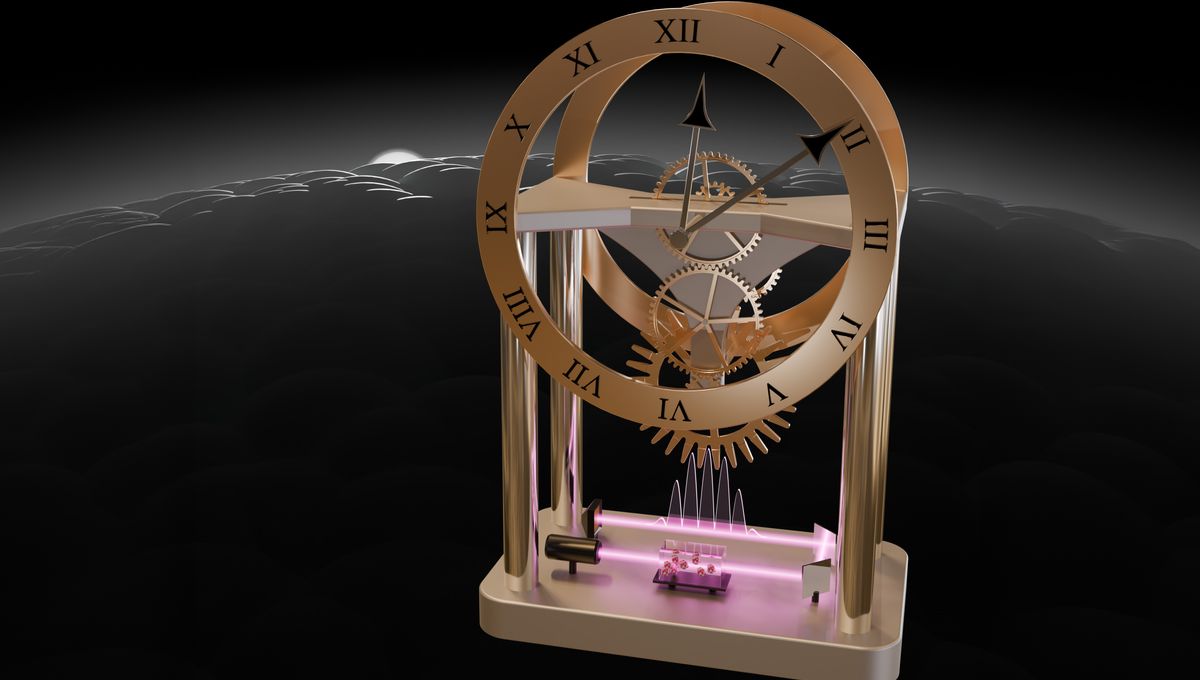
Ultraprecise timekeeping has made major leaps in the last several years. There are clocks that are hundreds of times more accurate than the standard atomic clocks that are employed across the world. Those are known as optical atomic clocks and have set many records recently. But researchers think they can go even further. They can build a nuclear clock.
The secret of extreme timekeeping is to be able to measure an almost instantaneous beat very well. In atomic clocks, the beat is electrons jumping between energy levels. In traditional atomic clocks that is done using microwaves and cesium atoms, but in optical atomic clocks, which are way more accurate, scientists use different wavelengths and different atoms. Still, it’s the electron transition that matters.
But in nuclear clocks, the changes in energy levels are happening in the nucleus, which is a lot more stable compared to the electrons at the edge of the atom. It usually requires high-energy light for these jumps to occur, namely X-rays; but scientists have known for a while that thorium-229 has the lowest energy jump of any atom, and it requires ultraviolet light, which is much easier to use.
The problem is that a precise value of the frequency for this jump was not known. So researchers have now used an extremely precise optical atomic clock, a crystal featuring thorium-229, and a laser to measure this value – the first crucial step in creating a whole new way to measure time.
“Imagine a wristwatch that wouldn’t lose a second even if you left it running for billions of years,” senior author Jun Ye, from the National Institute of Standards and Technology, said in a statement. “While we’re not quite there yet, this research brings us closer to that level of precision.”
You might be wondering why this precision is needed. It might not appear to have an immediate practical application, but we are indirectly using atomic clocks all the time. Our banks use them to transfer money, they are used in navigation systems, and more. So more precise timekeeping means improvements in all of those, but also faster internet speeds and more secure communication. And while the road is long, this demonstration shows that a new future for timekeeping is at hand.
“With this first prototype, we have proven: Thorium can be used as a timekeeper for ultra-high-precision measurements. All that is left to do is technical development work, with no more major obstacles to be expected,” co-author Thorsten Schumm, from Vienna University of Technology, said in another statement.
The study is published in the journal Nature.
Source Link: Nuclear Clock Breakthrough Is Another Step Forward In Extreme Timekeeping